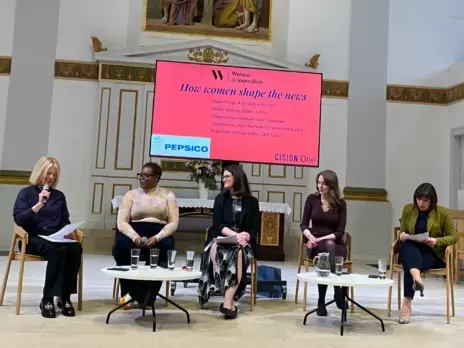
Julian Assange has begun his fight against extradition to the US over allegations he conspired to break into a classified Pentagon computer.
The Wikileaks founder appeared at Westminster Magistrates’ Court for his first extradition hearing since being hauled out of the Ecuadorian embassy in London where he hid for nearly seven years.
The extradition appearance came a day after Assange was sentenced to 50 weeks’ jail for breaching bail when he failed to surrender to police in 2012.
The Australian, wearing jeans, a dark jacket and light coloured top, appeared via videolink from Belmarsh prison to a packed courtroom today.
He formally refused to consent to being extradited, during a hearing which lasted a little over ten minutes.
The 47-year-old said: “I do not wish to surrender myself for extradition for doing journalism that has won many awards and protected many people.”
Shortly after Assange was removed from the embassy on 11 April, US prosecutors announced that he had been charged with conspiring alongside intelligence analyst Chelsea Manning to infiltrate a Pentagon computer.
The charge carries a maximum of five years’ imprisonment and relates to Assange‘s “alleged role in one of the largest compromises of classified information” in US history.
Prosecutors claim he assisted Manning in cracking a password to help her leak classified records to the whistleblowing website.
Classified documents allegedly downloaded included approximately 90,000 Afghan war-related significant activity reports, 400,000 Iraq war-related significant activity reports, 800 Guantanamo Bay detainee assessments and 250,000 US State Department cables, the court heard.
Ben Brandon, a barrister for the US government, said investigators there had uncovered chatroom conversations between Assange and Manning.
Brandon said: “Investigators in the US obtained details of chatroom communications between Ms Manning and Mr Assange in March 2010 from Ms Manning’s computer.”
He said the pair had “engaged in real time discussions regarding Chelsea Manning’s dissemination of confidential records to Mr Assange”.
He added that Assange “actively tried to crack the password (to the classified computer) and encouraged Ms Manning to provide more information.”
District Judge Michael Snow remanded Assange into custody to appear via video link again at the same court on 30 May for a further case management hearing.
Outside the court, Assange‘s lawyer Jennifer Robinson said: “Despite what you heard from the prosecutor in the courtroom today this case is not about hacking.
“This case is about a journalist and a publisher who had conversations with a source about accessing material, encouraged that source to provide material and spoke to that source about how to protect their identity. This is protected activity that journalists engage in all the time.”
She said Assange‘s prosecution and extradition for the activities she described “would place a massive chill on investigative journalism the world over”.
Assange was previously convicted of breaching bail after entering the Ecuadorian embassy and claiming political asylum while wanted over allegations of sexual offences in Sweden, which he denies.
A large group of his supporters gathered both inside and outside the court building on this morning to offer solidarity. Some of those who who got inside court three for the hearing had to stand or sat on the floor.
Lauri Love, whose saw his own extradition decision over allegations he hacked US government computer networks overturned by the High Court last year, was among them.
Judges had ruled the extradition of Love, who has Asperger’s, “would be oppressive by reason of his physical and mental condition”.
The 34-year-old from Suffolk, said he came to court to “keep an eye on the process and make sure that it’s done as fairly as possible”.
He said: “I’ve been through this whole mill so I am supporting Julian in opposing extradition to the US where I think he would, like myself, not have a very strong chance of having a fair trial.
“I know how traumatic this ordeal can be, years of having to be afraid of being taken to another country and treated badly.”
Wikileaks editor-in-chief Kristinn Hrafnsson said he is “worried” about Assange, describing conditions at Belmarsh prison as “appalling because of austerity and cutbacks”.
He said Assange was mostly spending 23 of 24 hours a day in his cell.
He added: “That is what we call in general terms solitary confinement. That’s unacceptable.”
Picture: Reuters/Henry Nicholls
Email pged@pressgazette.co.uk to point out mistakes, provide story tips or send in a letter for publication on our "Letters Page" blog






